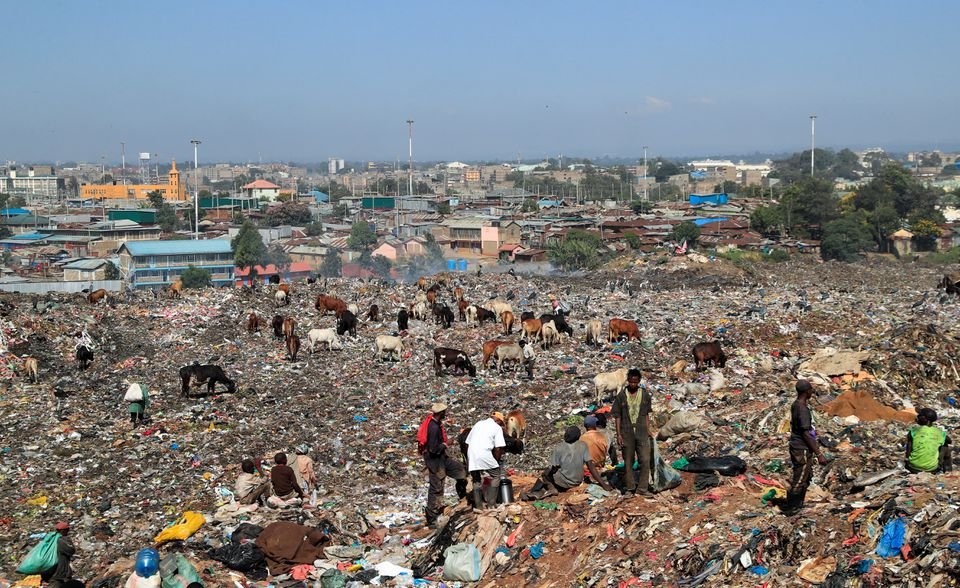Ending plastic pollution is among the priorities of the UN Environment Assembly
United Nations negotiators have agreed on a roadmap for a global plastics treaty that would address the production and design of plastic packaging, according to a draft resolution seen by Reuters, in what delegates said was a key step towards an ambitious agreement.
UN member states are meeting this week in Nairobi to adopt plans for the first global agreement to tackle plastic pollution, a runaway environmental crisis that is destroying marine habitats and contaminating the food chain.
Delegates attending the United Nations Environment Assembly, which began the second part of its fifth session on Monday in Nairobi, Kenya, are focusing on making progress towards a global agreement on plastic pollution, among a series of draft resolutions on biodiversity and health, the green and circular economy.
Environment ministers and other representatives from over 170 nations are attending the three-day hybrid meeting.
The theme of the session is "Strengthening action for nature to achieve the Sustainable Development Goals", which highlights the central role that nature plays in our lives and in social, economic and environmental sustainability.
UNEP/Cyril Villemain, A 30-foot-high monument entitled "Turn off the plastic tap" by Canadian artist and activist Benjamin von Wong stands outside the UN Environment Assembly in Nairobi, Kenya.
A binding global agreement on plastic pollution is high on the agenda. However, participants are also expected to address a host of other pressing issues concerning the planet and its inhabitants, including the thematic areas of: nature for climate; nature for human and ecosystem health; nature for poverty eradication, employment and economic prosperity; and nature for sustainable food systems.
Launching the proceedings, Norway's Minister of Climate and Environment, who is chairing the fifth session, acknowledged that the Assembly was meeting at a time of serious geopolitical upheaval.
"More than ever, we need to demonstrate that multilateral diplomacy can be effective," said Espen Barth Eide, arguing that multilateral action would be essential to tackle the "noble mission of ending plastic pollution".
"Plastic pollution has become an epidemic in its own right. Paradoxically, plastics are some of the most durable products we humans have made - and often we just throw them away," he explained.
Noting that plastic is a product that can be used over and over again, Barth said that "if we make it part of a circular economy. I am convinced that the time has come for a legally binding treaty to end plastic pollution.
For her part, the Executive Director of the United Nations Environment Programme (UNEP) said that "enormous progress" had been made during negotiations for an international legally binding instrument to end plastic pollution last week.
"I am convinced that once the Assembly approves it, we will have something truly historic in our hands," said Inger Andersen.
"Ambitious action to defeat plastic pollution must follow the lifespan of plastic products - from source to sea - be legally binding, be accompanied by support for developing countries, be backed by funding mechanisms, be followed by strong monitoring mechanisms and engage all stakeholders - including the private sector," added Andersen.
The resolution on plastic pollution, as well as the other urgent environmental issues, will be formally decided by Member States at the closing plenary of the Assembly on Wednesday 2 March 2022.
Garbage collectors sorting recyclable plastics at the Dandora landfill site on the outskirts of Nairobi, Kenya, on 26 February 2022. Photo taken on February 26, 2022. REUTERS/Thomas Mukoya
About the UN Environment Assembly:
The UN Environment Assembly meets every two years to set global environmental policy priorities and develop international environmental law; the subsequent decisions and resolutions taken by Member States at the Assembly also shape the work of UNEP.


